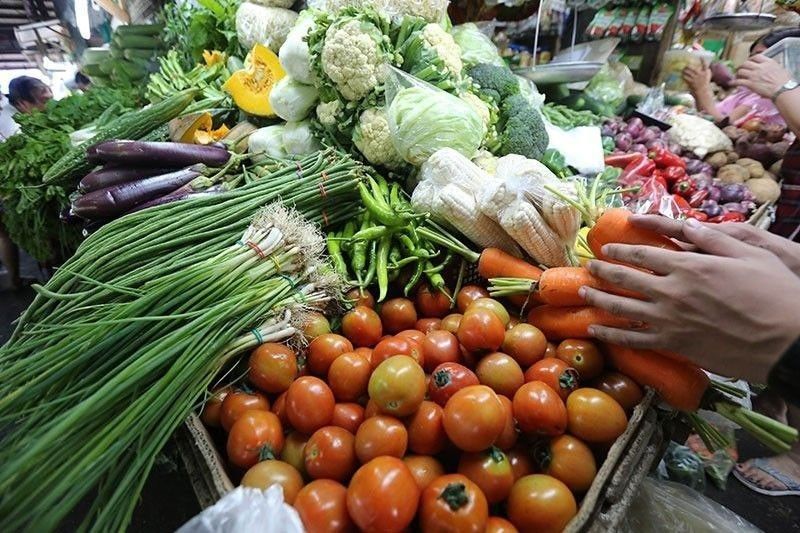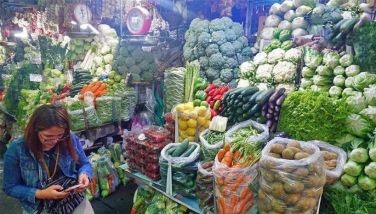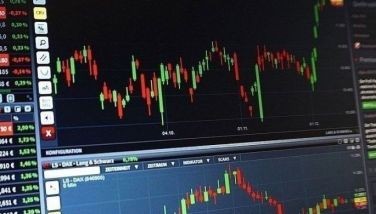May inflation likely eased to 4.4%

MANILA, Philippines — Inflation likely eased slightly to 4.4 percent in May from 4.5 percent in April amid the decline in prices of key food items, as well as the continued strengthening of the peso against the dollar, according to the Bangko Sentral ng Pilipinas.
BSP Governor Benjamin Diokno expects inflation to settle within the four to 4.8 percent range in May.
Diokno said higher prices of meat and domestic petroleum products, along with the upward adjustment in electricity rates in areas serviced by the Manila Electric Co. (Meralco) were the main sources of upward price pressures last month.
Diokno also said the continued decline in prices of key food items, particularly rice, vegetables and fish due to improved supply conditions offset the upward price pressures.
Inflation averaged 4.5 percent from January to April due to supply-side shocks on food prices, particularly meat, caused by weather-related disturbances as well as the outbreak of African swine fever (ASF).
The average is above the upper end of the two to four percent inflation target set by the BSP for the year.
“Moving forward, the BSP will remain watchful of economic and financial developments to ensure that the monetary policy stance remains consistent with the BSP’s price stability mandate,” Diokno said.
The BSP chief earlier said monetary authorities are closely monitoring the impact of rising global oil prices driven by improved prospects of global demand amid the gradual recovery from the COVID-19 pandemic.
“The BSP will continue to monitor and update the oil price outlook as it remains highly uncertain given evolving developments related to the pandemic and the uneven global recovery,” Diokno said.
The spot price of Dubai crude oil, a benchmark for Asian countries like the Philippines more than doubled to $62.32 per barrel in April relative to the same period last year as many countries recover from the global health crisis and amid the ongoing production limits from the Organization of Petroleum Countries (OPEC).
As a net oil importer, the Philippines closely monitors global oil price movements as a rising trend tend can cause an increase in transport inflation rates.
In April, Diokno said transport inflation increased to 17.6 percent year-on-year due in part to higher domestic pump prices. Increased transport inflation was also affected by elevated transport fares, particularly following the fare increases for tricycles.
Transport inflation contributed about 1.4 percentage points to headline inflation in April, and was considered the main driver of higher non-food inflation in recent months
Both the International Monetary Fund (IMF) and the World Bank expect global crude oil prices to average above $50 per barrel in 2021 and 2022.
Dennis Lapid, director of the Monetary Policy Research Group of the BSP, said the Monetary Board slashed the projected inflation to 3.9 percent this year but raised next year’s forecast to three percent.
- Latest
- Trending


























